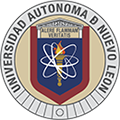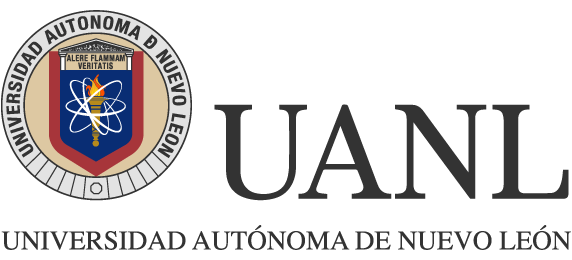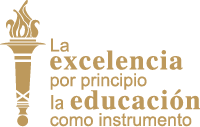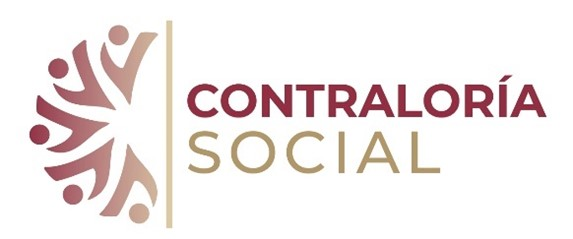Share:
Licenciatura en Gestión de la Responsabilidad Social
School of Accounting and Business Management
School of Social Work and Human Development
Admission profile
To apply for the Bachelor’s Degree program in Social Responsibility Management, candidates should demonstrate the following qualities:
i. Assessable Characteristics
- Proficiency in mathematical reasoning.
- Strong analytical thinking abilities.
- Understanding of language structure.
- Excellent reading comprehension.
- Fundamental understanding of administration.
- Effective communication skills in English
ii. Desirable Characteristics
- Initiative-driven
- Demonstrates leadership qualities
- Shows a keen interest in social responsibility
- Diligent and dedicated
- Proactively engages
- Open to and respectful of diverse viewpoints
- Actively participates and collaborates in multidisciplinary teams
- Displays ethical conduct
Admission requirements
Academic
- Have successfully graduated from high school or its equivalent.
Legal
- Those outlined by the current regulations and procedures of the University, or any others that may be applicable.
Testing
- The student is required to complete the entrance exam established by UANL.
Program-specific
- Submit the psychometric test.
- Complete the propaedeutic course.
- The student must undertake the learning units within the designated unit, as per the study plan.
Graduation profile
The aim is to educate Social Responsibility Management graduates with a strong dedication to humanity, society, and ethics. They are to champion values like equity, solidarity, justice, and respect for both nature and fellow beings. These graduates will assume professional leadership roles capable of managing, developing, administering, and spearheading innovative projects in social responsibility. These projects will prioritize sustainability and address the social, economic, and environmental needs intertwined across public, private, and social sectors. The graduates will propose improvements while considering the impact of public policies and adhering to current regulations. Ultimately, their goal is to foster the construction of a sustainable society that harmonizes with its economic, social, and environmental contexts, contributing to the collective well-being.
General skills
Instrumental competencies
1. Apply autonomous learning strategies across various levels and fields of knowledge to facilitate timely and relevant decision-making in personal, academic, and professional contexts.
2. Utilize logical, formal, mathematical, iconic, verbal, and non-verbal languages appropriate to their life stage. This enables them to comprehend, interpret, and articulate ideas, emotions, theories, and intellectual currents with an inclusive approach.
3. Effectively navigate Information, Communication, Knowledge, and Digital Learning Technologies (TICCAD) as tools for accessing information and converting it into knowledge. Proficiency in these technologies enables seamless learning and collaborative work, empowering individuals to contribute constructively to society using cutting-edge techniques.
4. Demonstrate mastery of their mother tongue, both orally and in writing, with precision, relevance, timeliness, and ethical considerations. They adapt their message to the situation or context, effectively transmitting ideas and scientific findings.
5. Employ logical, critical, creative, and proactive thinking to analyze natural and social phenomena. This enables them to make informed decisions within their sphere of influence while upholding social responsibility.
6. Utilize a second language, preferably English, fluently and accurately to communicate across everyday, academic, professional, and scientific contexts
7. Formulate inter-, multi-, and transdisciplinary academic and professional proposals aligned with global best practices to foster and strengthen collaborative work.
8. Employ both traditional and state-of-the-art research methods and techniques to advance their academic endeavors, professional practice, and knowledge generation.
Personal and Social Interaction Skills
9. Maintain an attitude of commitment and respect towards the diversity of social and cultural practices that reinforce the principle of integration in local, national, and international contexts, aiming to promote environments of peaceful coexistence.
10. Address the challenges of contemporary society at both local and global levels with a critical mindset and a commitment, both humanely and professionally, to contribute to the advancement of general welfare and sustainable development.
11. Uphold the values advocated by UANL: truth, equity, honesty, freedom, solidarity, respect for life and others, peace, respect for nature, integrity, ethical behavior, and justice, both in personal and professional spheres, contributing to the establishment of a sustainable society.
Integral competencies
12. Develop innovative proposals based on a holistic understanding of reality to contribute to overcoming the challenges of the interdependent global environment.
13. Assume leadership committed to addressing social and professional needs to promote relevant social change.
14. Resolve personal and social conflicts using specific techniques within the academic field and their profession for informed decision-making.
15. Achieve the adaptability required by the uncertain professional and social environments of our time to create better living conditions.
.
Specific skills
1. Lead social responsibility projects by utilizing management systems across public, private, and social sectors. Demonstrate ethical leadership through innovative practices, fostering stakeholder participation to maximize resources and promote sustainability within society.
2. Create social and environmental projects and initiatives that foster social responsibility, considering social, political, and economic factors. Adhere to current legal frameworks to reinforce actions undertaken by both public and private entities.
3. Develop enhancement strategies for environmental and social plans, programs, and projects by analyzing the state, governmental systems, and the influence of public policies. This ensures the effectiveness, efficiency, and relevance of actions undertaken by public and private organizations, ultimately contributing to social welfare.
4. Ethically and efficiently manage economic resources within social responsibility projects and programs, employing economic, financial, and accounting tools. Consideration of the macroeconomic environment ensures the organizations can fulfill sustainable actions effectively.
5. Encourage sustainable projects and initiatives within companies by employing innovative and eco-friendly marketing strategies. Utilize market intelligence and advanced technological tools to support the achievement of social responsibility objectives within both public and private organizations.
6. Pursue competitive and innovative business ventures by identifying social, environmental, and economic needs within the public and/or private sectors. Optimize financial, human, and technological resources to propose solutions that create value for society’s benefit.
Labor market
| Field | |
| Tasks | |
| Public and private organizations of any sector or line of business, in the following areas: | |
| 1. Social responsibility |
|
| 2. Human resources |
|
|
3. Sustainable development |
1. Provide training on sustainability and environmental issues.
|
| 4. Audits | 1. Ensure regulatory compliance regarding social responsibility issues for audits.
|
|
5. Self-employment |
. |
Graduation requirements
Academic
-Fulfill the requirement of obtaining 189 total credits from the study plan.
- Complete the mandatory Learning Service component.
Legal
- Adhere to the regulations and procedures set forth by the University and any other applicable regulations, as determined by the current norms and procedures in place.
Program-specific
-Attend and complete the Seminar for professional performance.
- Successfully pass the bachelor's degree graduation exam.
- Provide evidence of participation in activities for comprehensive training.
- Demonstrate proficiency in a foreign language by providing proof of development or enhancement of language competence.
Location
Fecha de aprobación del H. Consejo Universitario
30 de noviembre de 2021Posted by: Dirección del Sistema de Estudios de Licenciatura




